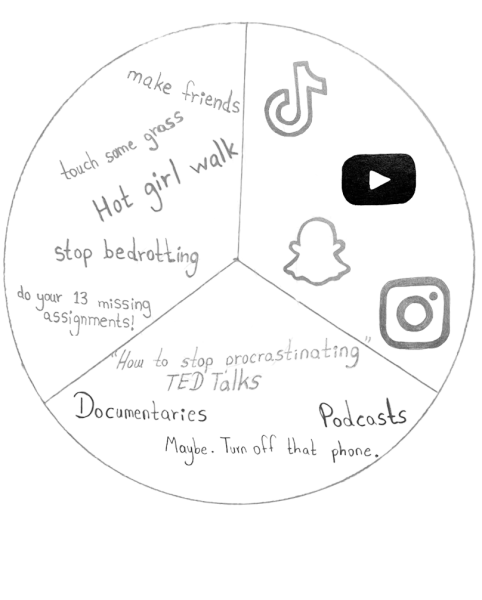Mod Mania
A deep dive into the desire to get body modifications.
From ear piercings to tattooed eyeballs, body modifications encompass a wide range of different procedures. As a research paper from Bradley University put it, “body modifications allow our physical appearance to be ‘the products of the culture around us’”. In the hallways of Garfield Highschool, there is a colorful assortment of stick n’ pokes, full sleeves of ‘ink’, and a smattering of different piercings. However eye-catching these physical embellishments may be, there is a spectrum of acceptance when it comes to which piercings go where and what tattoo is allowed on whose body.
There can be a societal stigma associated with more egregious modifications including face tattoos and piercings. Certain professions, especially those that include a high degree of personal interaction, could be more difficult to pursue due to body mods. “I think they’re just a form of expression and have no impact on a person’s actual capabilities so … it’s very interesting that [body modifications] are often lumped in with what people have an idea of somebody else’s potential,” Garfield junior Emilly Allen said.
Another common factor that dissuades some students from getting body mods is procedure pain. Truth be told, if the pain is the main inhibiting factor of getting a piercing, that’s probably a sign not to get the procedure done at all. Nevertheless, in most cases, the anticipation of getting the procedure is actually more painful then the procedure itself. “It didn’t hurt as much as I thought it was going to – It just felt like a cat scratch. I mean cat scratches hurt (…) but you see tattoo shows and they’re just in excruciating pain but it wasn’t that bad” Garfield freshman Wren McIntosh said.
Permanence is also an element in choosing to get a new tattoo or piercing.
Despite the vast options of new ink-removal technology and plastic surgery procedures, body modifications are more often than not permanent… or at least a pain in the butt to un-do. McIntosh and Allen suggested sitting with the idea of getting an alteration for at least a month before being too spontaneous and making a reckless decision. “You’re going to look at it for the rest of your life and you want it to be interesting and important to you and if over time if the designs get interesting or boring, then it’s not worth it” McIntosh said.
Then again, their permanence is what makes body art so attractive: unlike makeup, this art can go further than skin-deep. “Even if I end up and I’m like ‘this sucks I hate this drawing’, I know I designed it at an age where it was really important to me.” McIntosh said when talking about her tattoo.
Despite the potential drawbacks, the principle reason for getting a body mod embodies self expression and creativity. “I was always a little insecure about my shoulders because they were always more broad then is said to be more feminine so I was like, ‘I’ll put a tattoo on it, it’ll be something I’ll be proud of,’” McIntosh said. They are also an outlet of physical expression that doesn’t involve clothing. “A lot of people have trouble expressing themselves with just their clothes or like the way they present themselves, so they like to put art on their body,” McIntosh said.





